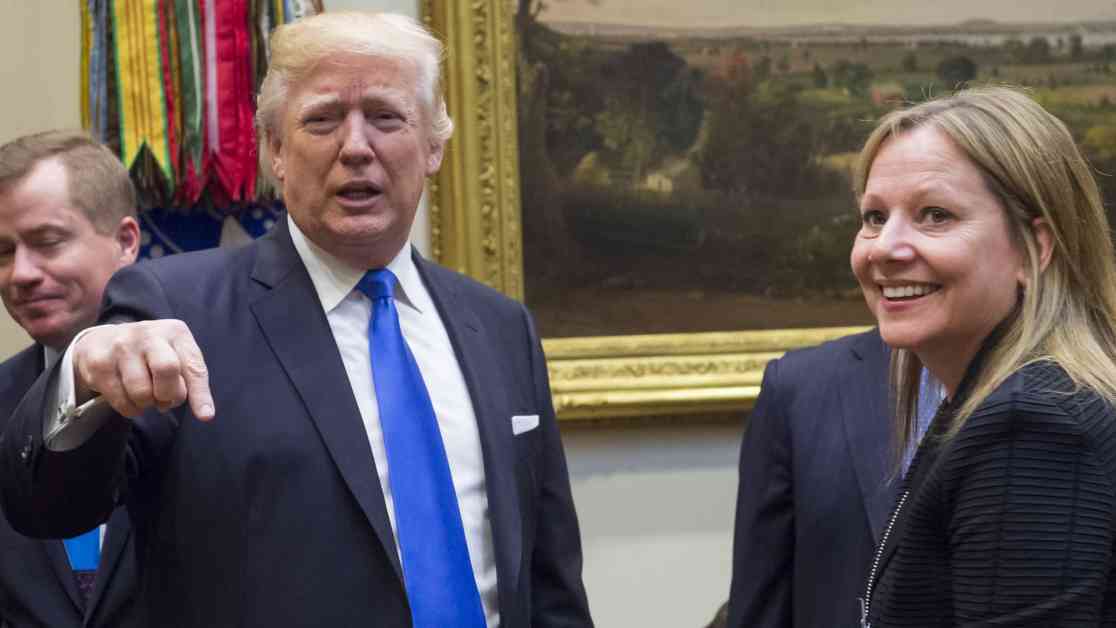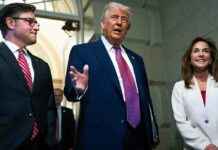General Motors (GM) CEO Mary Barra recently unveiled a strategic plan to combat potential tariffs imposed by President Donald Trump on imports from Canada and Mexico. Barra expressed confidence in GM’s ability to mitigate a significant portion of these tariffs, aiming to lessen the impact on the company’s operations coming from its neighboring countries.
During a Wolfe Research investment conference, Barra shared that GM has comprehensive contingency plans in place to address the potential levies on auto parts and vehicles entering the U.S. from Canada and Mexico. She emphasized that GM could potentially reduce the short-term impacts of the additional costs by 30% to 50% without the need for significant capital expenditure, highlighting the company’s preparedness for such scenarios.
Accompanied by GM CFO Paul Jacobson, Barra further elaborated on the company’s readiness to implement additional measures, such as production shifts, if the tariffs were prolonged. These detailed insights from GM’s top executives come in response to investor concerns that were not addressed during the automaker’s recent earnings call, which led to a notable decline in the company’s stock value.
Industry Response to Tariffs
Barra’s proactive stance contrasts with the sentiments expressed by Ford Motor CEO Jim Farley, who described the current and threatened tariffs as causing “chaos” within the U.S. automotive industry. Farley highlighted the adverse effects of the 25% tariffs on steel and aluminum, as well as the impending levies on Canada and Mexico, raising concerns about increased costs and operational disruptions in the sector.
Farley’s perspective on the tariffs underscores the challenges faced by American automakers as they navigate the uncertainties created by the evolving trade policies. Both GM and Ford are grappling with the potential ramifications of these tariffs on their supply chains and production costs, prompting them to explore various strategies to mitigate the impact on their businesses.
Meeting with Government Officials
Farley’s proactive engagement with government officials, including members of Congress, to address the policy uncertainties affecting the automotive industry reflects a concerted effort by industry leaders to advocate for a comprehensive approach to trade policies. By emphasizing the need for a holistic assessment of tariffs across all countries, Farley aims to protect the interests of American automakers and minimize disruptions to the industry.
As GM and Ford navigate the complexities of trade policies and tariff implications, the broader automotive sector remains on high alert for potential changes that could significantly impact their operations. The evolving dynamics of global trade underscore the importance of strategic planning and proactive engagement with policymakers to safeguard the interests of American automakers.
In conclusion, the proactive steps taken by GM and Ford to address the challenges posed by potential tariffs reflect the resilience and adaptability of the U.S. automotive industry in the face of evolving trade dynamics. By leveraging strategic contingency plans and engaging with policymakers, these automakers are positioning themselves to navigate the uncertainties of the global trade landscape and sustain their competitive edge in the market.

























